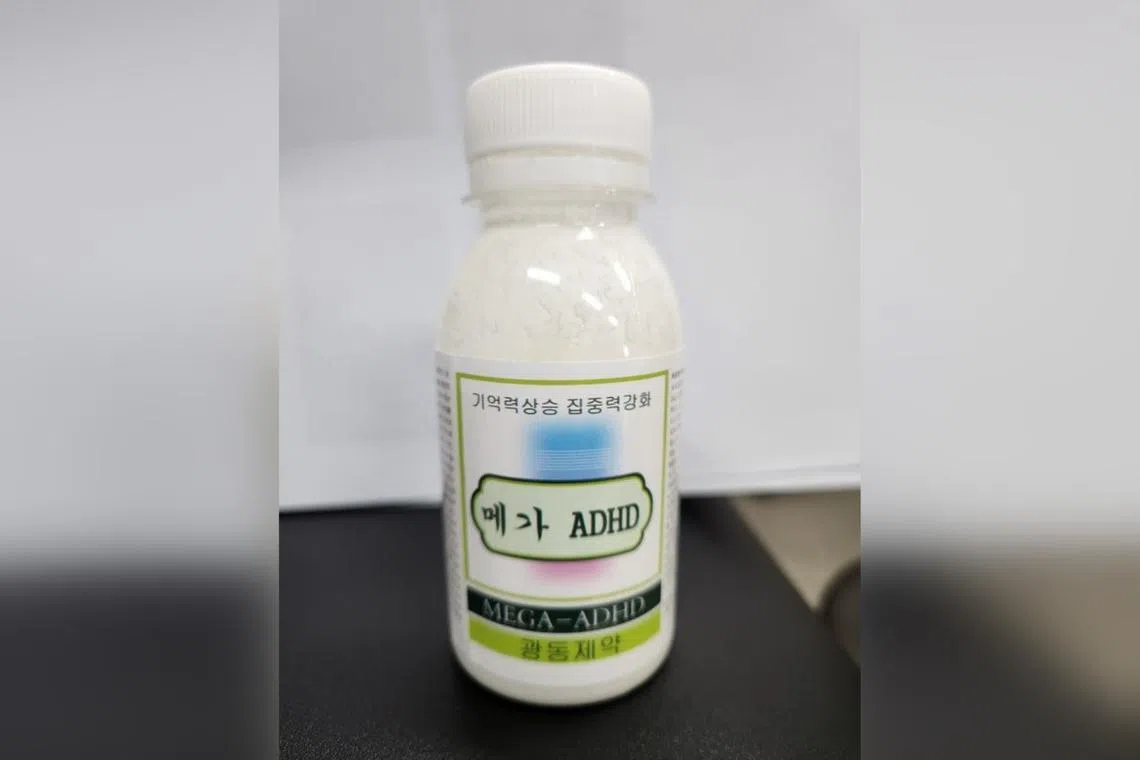South Korean drug rings spike free drinks for students to blackmail parents
Sign up now: Get ST's newsletters delivered to your inbox

The free drinks were introduced as a brain-boosting beverage for concentration and memory.
PHOTO: SEOUL GANGNAM POLICE STATION
Follow topic:
First, they offer high schoolers free drinks outside cram schools to purportedly help boost their concentration and memory. Then they extort money from families of the clueless youngsters who would later realise they have inadvertently consumed illegal drugs that were added into their drinks.
The modus operandi came to light in South Korea last week when seven students who took the drinks showed symptoms of drug abuse and tested positive in illicit substance tests.
The Korea Herald reported that four “salesman-like” people handed out the drug-laced drinks on April 3 on the streets of Daechi-dong – a district known as the country’s private education mecca in southern Seoul’s Gangnam – lined with thousands of after-school cram schools.
The drinks, introduced as a brain-boosting beverage for concentration and memory, were later found to have been infused with methamphetamine and Ecstasy.
One parent reportedly also consumed the beverage, while some people took a few sips and threw the drinks away as they tasted “really strange”, The Korea Herald reported, citing sources.
The people handing out the drinks allegedly asked high schoolers for their parents’ contact information, according to the police. The drug rings later demanded some 100 million won (S$100,700) from the parents, threatening to report their children to the police for drug-taking.
Four suspects who distributed the drinks on the street claimed that they were unaware that the drinks were infused with drugs and said they were part-time workers who found the job online.
Two people suspected of orchestrating the scam, surnamed Gil and Kim, were detained last Friday and appeared in court on Monday afternoon.
Another two suspects based in China – a South Korean national in his 20s surnamed Lee and a 30-something Chinese national surnamed Park – were being tracked down by police.
This was not the first time drugs had wreaked havoc in the posh neighbourhood. According to reports, rumours first surfaced among parents in 2022 that people were handing out leaflets and drug-laced candies to students near school gates and big private academies to the point where students were told not to accept food or gifts from strangers.
According to online posts, similar attempts were allegedly made in the past, targeting students in Gangnam as “future drug clients”.
South Korea is facing an uphill battle to control drug-related crimes among the younger generation as narcotics have become increasingly available. According to data obtained by the Justice Party’s policy committee from the Supreme Prosecutors’ Office website, the number of teenage drug offenders in 2022 was 481, a nearly eightfold increase from 58 in 2013.
“Now is not the time to just shed light on who has done drugs, but to lay out a long-term blueprint on how to prevent the influx of drugs into the country, since the government is struggling to stem drug trafficking,” Mr Jeon Kyoung-soo, head of the Drug Criminology Institute of Korea, told The Korea Herald.
“Since some of the students consumed the drinks, we have to prevent them from becoming future drug users through proper educational programmes. This is how we have to fight against the soaring drug crisis.”

